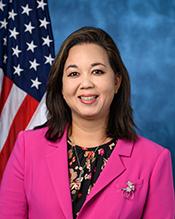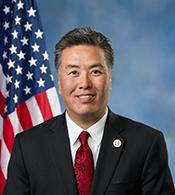0
0
0
Judicial Ethics and Anti-Corruption Act of 2023
12/15/2023, 3:59 PM
Summary of Bill HR 3973
Bill 118 HR 3973, also known as the Judicial Ethics and Anti-Corruption Act of 2023, aims to address issues of ethics and corruption within the judicial branch of the United States government. The bill includes provisions that seek to increase transparency and accountability among judges, as well as establish mechanisms to prevent and address instances of corruption.
One key aspect of the bill is the establishment of a code of conduct for judges, which outlines ethical standards and guidelines for behavior. Judges would be required to adhere to this code and could face disciplinary action if found to be in violation of its provisions. Additionally, the bill includes measures to increase transparency in judicial decision-making processes, such as requiring judges to disclose financial interests and potential conflicts of interest.
The bill also seeks to address issues of corruption within the judicial branch by establishing a system for investigating and prosecuting instances of judicial misconduct. This would involve the creation of an independent oversight body responsible for investigating complaints against judges and taking appropriate action when necessary. Overall, the Judicial Ethics and Anti-Corruption Act of 2023 aims to promote integrity and accountability within the judicial branch, ensuring that judges uphold the highest ethical standards and maintain the trust of the American people.
One key aspect of the bill is the establishment of a code of conduct for judges, which outlines ethical standards and guidelines for behavior. Judges would be required to adhere to this code and could face disciplinary action if found to be in violation of its provisions. Additionally, the bill includes measures to increase transparency in judicial decision-making processes, such as requiring judges to disclose financial interests and potential conflicts of interest.
The bill also seeks to address issues of corruption within the judicial branch by establishing a system for investigating and prosecuting instances of judicial misconduct. This would involve the creation of an independent oversight body responsible for investigating complaints against judges and taking appropriate action when necessary. Overall, the Judicial Ethics and Anti-Corruption Act of 2023 aims to promote integrity and accountability within the judicial branch, ensuring that judges uphold the highest ethical standards and maintain the trust of the American people.
Read the Full Bill
Current Status of Bill HR 3973
Bill HR 3973 is currently in the status of Bill Introduced since June 9, 2023. Bill HR 3973 was introduced during Congress 118 and was introduced to the House on June 9, 2023. Bill HR 3973's most recent activity was Referred to the Committee on the Judiciary, and in addition to the Committees on Oversight and Accountability, Rules, Financial Services, Agriculture, and House Administration, for a period to be subsequently determined by the Speaker, in each case for consideration of such provisions as fall within the jurisdiction of the committee concerned. as of June 9, 2023
Bipartisan Support of Bill HR 3973
Total Number of Sponsors
1Democrat Sponsors
1Republican Sponsors
0Unaffiliated Sponsors
0Total Number of Cosponsors
82Democrat Cosponsors
82Republican Cosponsors
0Unaffiliated Cosponsors
0Policy Area and Potential Impact of Bill HR 3973
Primary Policy Focus
LawAlternate Title(s) of Bill HR 3973
Judicial Ethics and Anti-Corruption Act of 2023
Judicial Ethics and Anti-Corruption Act of 2023
To establish judicial ethics.
Comments
Sponsors and Cosponsors of HR 3973
Latest Bills
Public Lands Military Readiness Act of 2025
Bill HR 5131December 11, 2025
Dalles Watershed Development Act
Bill HR 655December 11, 2025
STARS Act
Bill HR 4285December 11, 2025
To authorize, ratify, and confirm the Agreement of Settlement and Compromise to Resolve the Akwesasne Mohawk Land Claim in the State of New York, and for other purposes.
Bill HR 2916December 11, 2025
To designate the facility of the United States Postal Service located at 86 Main Street in Haverstraw, New York, as the "Paul Piperato Post Office Building".
Bill HR 1009December 11, 2025
Make SWAPs Efficient Act of 2025
Bill HR 1676December 11, 2025
Miccosukee Reserved Area Amendments Act
Bill HR 504December 11, 2025
To designate the facility of the United States Postal Service located at 298 Route 292 in Holmes, New York, as the "Sheriff Adrian 'Butch' Anderson Post Office Building".
Bill HR 1008December 11, 2025
Lower Elwha Klallam Tribe Project Lands Restoration Act
Bill HR 2388December 11, 2025
Fallen Servicemembers Religious Heritage Restoration Act
Bill HR 2701December 11, 2025
Judicial Ethics and Anti-Corruption Act of 2023
Bill S 1908March 12, 2024





